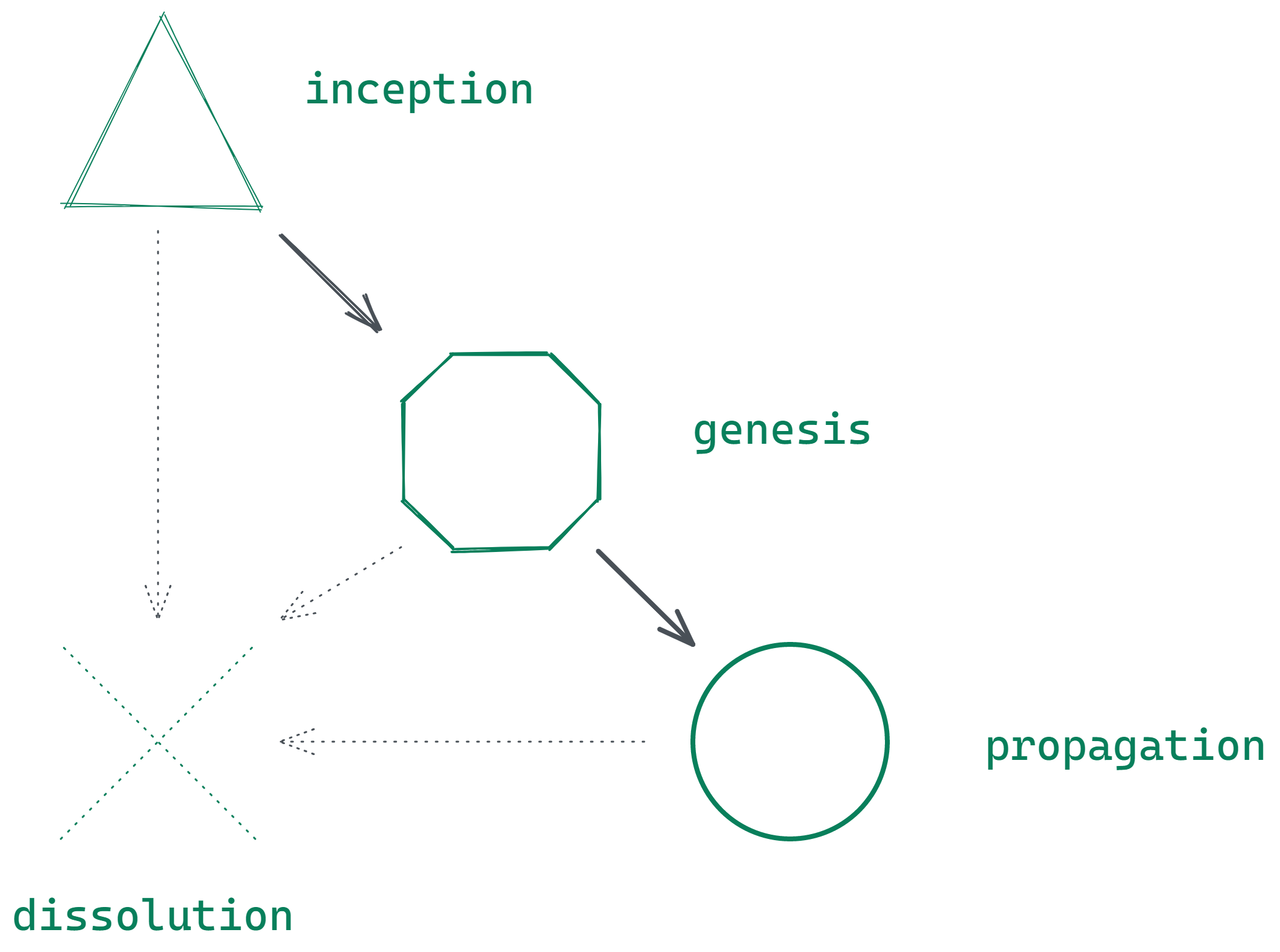mijncoin
>>=
basic is better
Collaborations don't start fully formed.
They change over time.
They change over time.
So why don't we expect that our DAOs have some infant form that begins to crawl, walk, then run?
Today's DAO are created through centralized effort in a process that fails to codify the thought
and effort prior to formation in contracts that include exit mechanisms.
We accept this almost thoughtlessly because, as humans, we are so conditioned to central authority.
native dao lifecycles
Even the best initiatives end. How does a decentralized organization handle the transition from something
to nothing? Perhaps as importantly, how do you handle the transition from nothing to something while you're still
building support and interest in a new project? What happens as you coalesce interest in your project?
How do you provide the guarantees smart contracts offer within a DAO, before the DAO?
(meta) dao
You can think of Basic is Better as a meta-DAO toolkit that allows you to form and manage the DAO that forms the DAO. And then you can use it to manage
your DAO.

DAOs are living organisms of organization,
not static artifacts of formation.
not static artifacts of formation.
That's why Basic is Better. We're building simple contracts to manage click-to-configure DAOs that allow you to grow a secure and understandable
DAO from components, rather than peel apart a larger framework when you want to do simple things.
Our roadmap includes effort to group contracts into simple DAO lifecycles that encapsulate common organic patterns.
We intend to make it simple to stand up a DAO for short term events like fundraisers to be used by organizations with an
intentionally short life. You can host your festival, bake sale, street races, or whatever, knowing that your DAO can be safely torn
down with a preset action or timeline.
Natural Lifecycles
Imagine that you want to form a private DAO chess club with seven members that will each invest 100 Sim-oleons for a chessboard in a park in your
favorite metaverse. But you only know three other members and need to find three more. Moving your DAO through a inception, genesis, and propagation phases,
each with its own governance and exit structure, allows you to lock in commitments, show others your progress, and either move forward or dissolve simply.
If your inception phase reaches its seven member target, then your genesis event mints and distributes tokens to each player, and you can buy your
chessboard in the park. If your propagation governance structure allows you to add members, your treasury processes can distribute their buy-in to
founding members, or keep it to help buy another chessboard in the park.
Later, if interest wanes and nobody is using your boards, you might have an
automatic voting event that clears the way for an auction and a return of Sim-oleons to active members and dissolves the DAO.
private dao build-outs
Even with simple tools, the avalanche of new concepts that come along with blockchain infrastructure can leave you without an understanding of the nuances
you need to know to get what you want. We're here to help.
custom smart contracts
We are a discreet consulting group focused on extensible and performant platforms: Cardano, Polkadot, Cosmos, and Mina.
We help companies deliver systems and services that are backed by blockchain and monetized via cryptocurrency. We understand
that cryptocurrency is the first, but is only one of many foundational technologies that will be built on blockchain.
We make building these for your business, our business.
We start with our own open-source, customizable Cardano components that can be built upward into a fit-for-purpose approach that's
preferred to tearing down a monolithic framework. Basic is Better for delivering truly useful minimum viable products
quickly with a guarantee that every feature added is a discrete element that can be understood and tested.
We accept new customers via referral for both consulting and private DAO buildouts. For American and Dutch inquiries:
blockchain < @ > mijncoin.io
